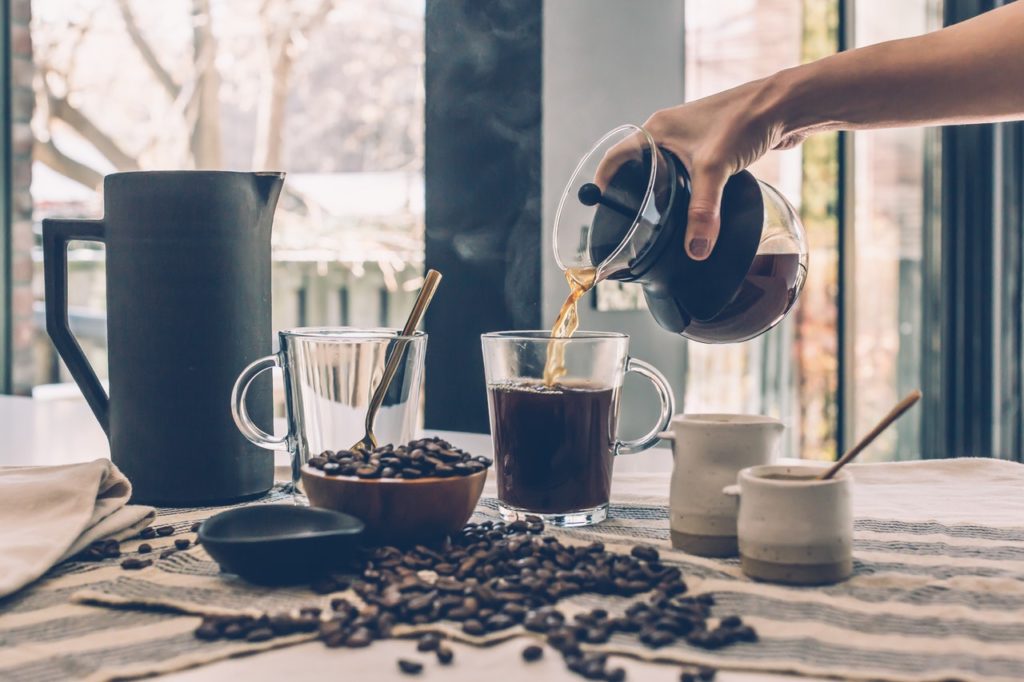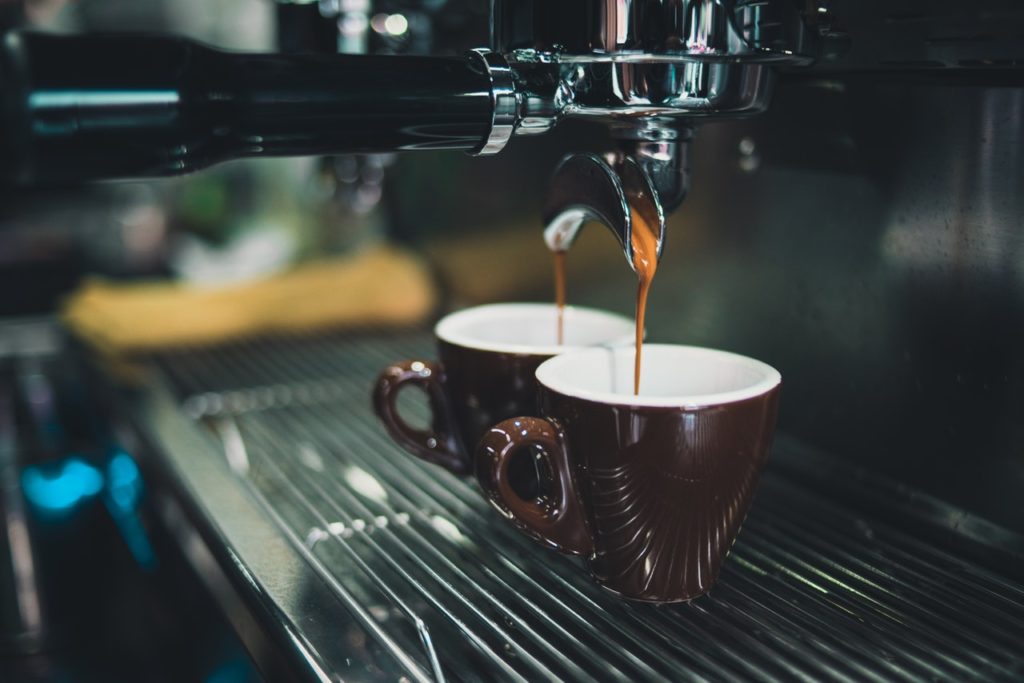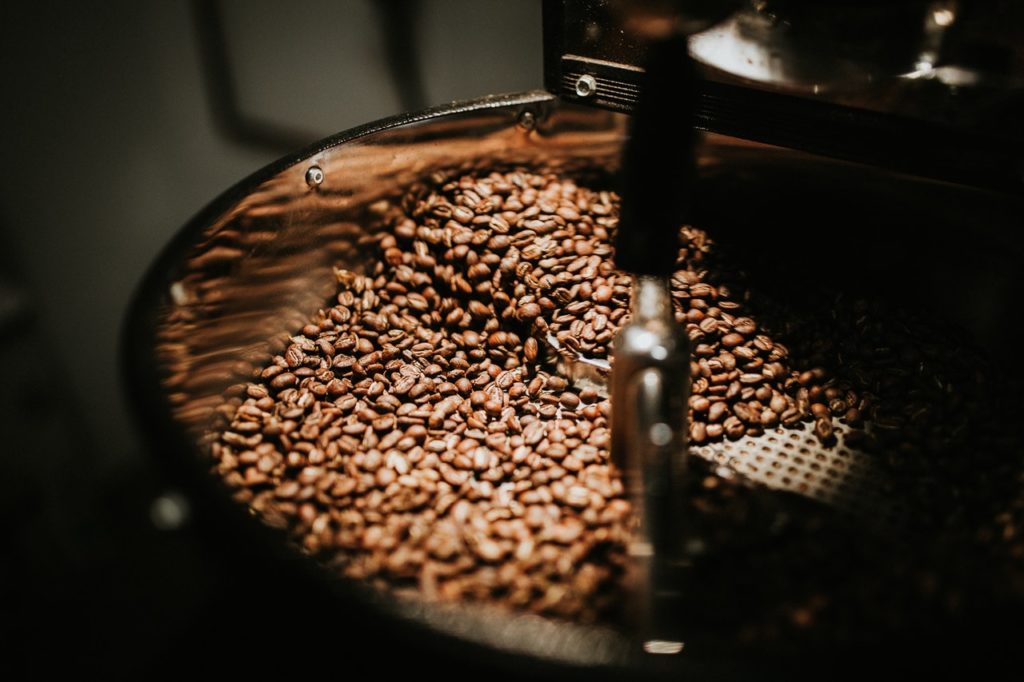
Choosing the right supplier can make or break your coffee shop on the day it opens. After all, you not only have to make your customers love it, but it also has to fit well with your establishment and agree with your budget.
With so many beans and suppliers to choose from, this task can be a little intimidating for first-time specialty coffee shop owners.
The good news is this doesn’t have to be the case. Now is the time for you to get serious about finding the best supplier for you – and it can be so much easier once you have a clear idea of how to go about it.
Here is the master list of everything you need to consider when choosing the right supplier for your beans.
Bean quality
Of course, the most obvious factor you should start with is the beans themselves. Since you will most likely order in bulk, you need to make sure that your purchase will be worth it. Bad beans means you’re stuck with bad inventory that won’t sell.
Each roaster has their own unique profile. Whether it’s a lighter, fruitier coffee, or a darker roast with notes of chocolate, there is a whole spectrum of roasts that can even be single-origin or blend.
On top of that, everything from its country of origin to its processing and roasting will play a major factor in the brand’s roast profile. In fact, these can change drastically depending on factors such as:
- Country of origin
- Bean freshness
- Shade-grown
- Climate
- Soil type and quality
- Altitude
When talking about the roast profile of a coffee, keep in mind that this has to do with the moisture content and moisture loss (when roasting), roasting temperature, color, and process stages.
For starters, here’s what you need to know about the different types of roast:
- Light – Milder flavors, usually fruity or acidic. Beans are lighter in color and have no oil on the surface due to the short roasting time.
- Medium roast –A stronger flavor than a light roast, but without the oily surface found in darker roasts.
- Dark roast – Rich and darker in color, with a slightly bittersweet aftertaste. Dark roasts have the highest amount of caffeine.
If you haven’t tried all of these yet, now is the time to do so. Next, ask yourself: of these three, which stands out to you?
Next, try different variations of the same type of roast. Between the blond light and the city light, which one do you prefer? Are you partial to the balance of bitterness and flavor, or do you enjoy the toasty, “burnt” notes of a dark roast?
Take the time to learn what you like and what you don’t, as well as what other people and cafes prefer to have. It’s especially important that you personally like the product you’re selling – you can’t be half-hearted about it.
With so many brands out there, it’s easy to be swayed by the flashy ones. Advertising can, and often is, very different from the actual product itself. As a buyer, you’re responsible for learning about the said product, and there’s no better way than doing your own homework.
Quality may cost a little extra, but you will see the rewards of your investment. You see customers coming back for more and recommending it to their friends and family.
Consider your requirements when searching for coffee shop suppliers

Don’t just go with the first supplier you find. In fact, you should start by looking for at least three whose bean varieties you can compare and contrast.
Coffee roasters can have a long list of single-origin beans and different blends, and these tend to be roasted differently. Choosing the right variety that you need for your selection can be made a lot easier by talking to the supplier about what exactly you’re looking for.
A good roaster is likely to give you advice on where to source the best ones for your shop, and you can work from there until you find the one you think really fits your needs.
On top of this, you should look for a wholesale supplier with a low minimum when it comes to bulk orders. Since you’ll be investing a lot with equipment and staff already, this can help you stay within your budget.
Ask for samples and references when looking into vendors for your coffee business
There is a world of difference between good and bad coffee. It’s not just subjective, either – there are many different compounds and reactions responsible for making a great cup, and it’s worth checking out for more than just your own curiosity.
When it comes to choosing coffee beans, it’s important to trust your senses (literally!). The best way to know if you like the beans is by signing up for tasting sessions to see if the coffee is to your liking.
You can also ask for free samples from each supplier. Many will be happy to provide you with one, and having a friend provide a second opinion never hurts. Blind taste tests, for instance, are a great indicator that a supplier is confident with their product.
Both new and established suppliers will regularly hold samplings, so try to book as many as you can.
If you’re not sure how to evaluate coffee yet, here’s a quick run-down on what the pros usually look for when evaluating, or “cupping” coffee:
- Acidity – Since coffee is naturally acidic, this is the hardest factor to describe, but this can determine the overall character. You can usually feel in your tongue if the coffee is “sharp” or “flat”.
- Aroma – Roughly speaking, this refers to how the coffee smells. This is a big part of experiencing coffee, and examples of aromas range from flowers, fruits, and even bread (toasty).
- Body – How does the coffee feel in your mouth? Whether it feels like water, wine, or even butter, depends on the fats, oils, and any remaining sediment still suspended in the coffee solution.
- Flavor – Of course, the most important part of the tasting experience is flavor, and this depends on the beans’ chemical composition. Does the taste remind you of chocolates? How about berries?
- Aftertaste – What lingers in your mouth after swallowing the coffee? Evaluators tend to describe this in more general terms, like “smoky” or “spicy”.
Once you’ve narrowed down your shortlist of potential suppliers, another way to whittle that list down even further is by visiting their physical location. This is completely different from simply looking at their website.
Make it a point to visit as many coffee roasters as you can. Not only is it a great way to network and establish connections, but it also gives you a glimpse at their attitude towards roasting beans that you won’t normally see in an ad or on a website.
Aside from the roasters, consider visiting other cafes and restaurants, too. Knowing where they source their beans can give you a headstart in finding the best supplier.
Look for exclusivity

Are you looking to set yourself apart from your competition? If so, you might have thought about sourcing your coffee beans from a different supplier than everyone else.
There are two different kinds of exclusivity:
- Supplier-exclusive – The supplier sources their own beans, with their own unique roast profile and taste. Doing a little research goes a long way here since you’ll be surprised how many suppliers just slap their own names on others’ roasts.
- Shop-exclusive –This means you are the only shop selling this particular variety. This kind of novelty can be great for novelty and a secure partnership between cafe and supplier.
That said, you don’t always have to go the road less traveled – having a target market with a known preference for a certain bean variety may mean that your work is already cut out for you since that brand is already well recognized.
Unless you’re looking to offer something completely new, sometimes there’s no harm in going with a bean variety or brand that customers are familiar with. There are both pros and cons to artisan coffees and chain blends.
For instance, if your establishment is located in an area with high foot traffic (i.e. a tourist area or a road people take to work), uncomplicated coffee is a safer and more reliable option.
Meanwhile, being situated in a city center near the business district often calls for a more full-bodied roast richer in caffeine, while being smack dab in the middle of two or more commercial establishments calls for a more artisanal touch to set yourself apart from the competition.
Look for coffee shop suppliers that provide additional services
On top of the beans, many suppliers may offer additional services, like full training, ancillary supplies, and equipment servicing. Others may even offer customer support in case of any coffee-related issues.
Let’s go over them in a little more detail:
- Staff training – First-time owners and new employees don’t always know how to brew and prepare coffee correctly on the first try, or even how to use the large equipment. Good training goes a long way.
- Ancillary products – There’s a good chance that coffee beans aren’t the supplier that will be selling. Ask around, and compare and contrast the bonus add-ons that each one has in store for you.
- Equipment – If you’re struggling to find the right espresso machine, having it (and other types of brewing equipment) come with the beans as a package can be a huge time-saver.
All this works toward creating a healthy relationship between the farmer, roaster, and buyer, promoting a rich exchange of information along with training and often crucial advice for cafe owners like yourself.
Equipment installation (if they also offer brewing equipment) and timely product delivery, are crucial things to consider whenever you purchase your supply. If they won’t do it for you, this can be time-consuming.
Other criteria to look for in coffee business vendors

Each business is unique, and this is especially true in the case of coffee shops. Even if you have the same business model, you can cater to a different market entirely or open at different hours, which may lead to a different menu, or even have your own very specific needs.
Because of this, it’s important to be able to formulate your own criteria. While the items listed below aren’t a hard and fast rule in terms of criteria, you do need to think about the other stuff you might want from your supplier. These can include:
- Relations with farmers/trade – Asking if the supplier’s beans are direct trade helps ensure a high-quality product and that the farmers are properly compensated for their hard work.
- Delivery frequency – As a cafe owner, fresh beans are your priority. While some coffees develop at a slightly longer period, you ideally want roasted coffee beans that are three to four days old. Any longer than 12 days and they can become stale.
- Availability – If you have any questions or concerns, they should be easy to reach via email or phone. If they’re responsive, that’s a good sign.
- Volume discounts – Do long-time customers get discounts on bulk orders? While you shouldn’t focus too much on this early on, it’s worth looking into if the budget is a little tight.
The list doesn’t have to stop here. After all, distinctive coffee isn’t easy to make or maintain. In fact, you can even include other factors when choosing a coffee supplier, like the following:
- Rankings – Coffee suppliers that regularly compete should have a clear rank and track record in the industry. These events employ certified judges that go through calibration before every competition.
- Infrastructure – Roasters who are serious about their business won’t just have a dedicated roastery and warehouse, but a dedicated cooling system to keep beans from going stale and losing all that aroma and flavor.
- Experience – It takes a whole lot of time and effort to be a reputable roaster, along with plenty of trial and error. Veteran roasters are around longer and have a deeper insight as to what goes into brewing.
- Flexibility – Coffees can change depending on seasons and growing conditions, so a great supplier should be able to evaluate and offer alternatives if the beans aren’t up to standard.
- Transparency – Roasters should be honest about when they roasted their coffee. Fresh beans will have a huge difference in quality compared to stale beans that have been sitting in a warehouse for a while.
Don’t be afraid to ask questions! This will give you an insight as to the supplier’s standards when it comes to things like client satisfaction, quality, and even logistics. Here are a few you can start with:
- Do you offer blind taste testing?
- How long is the estimated shipping time?
- Do you participate in brewing competitions?
- Do you have any customer reviews or references?
- Are your beans roast-to-order?
That last one is crucial. If the answer is “no”, or if you can’t get a direct “yes” from the supplier, find another one who can make roast-to-order beans – you don’t want to be stuck trying to move bags and bags of stale coffee clogging up your inventory, which often ends at a loss.
Consider buying local

It makes sense to buy from a local supplier first whenever you can. It can be a great selling point, especially since customers and aficionados are growing more interested in where the products they consume come from.
In fact, there are three very good reasons to choose a local supplier, such as the following:
- You’re getting the freshest beans possible – As previously mentioned, coffee is always best three to four days after roasting, and they start to lose their flavor afterward. They can’t get any fresher than when they’re near your area of operations.
- You save more in the long run – Proximity saves on delivery costs and cook time, while also retaining a high quality as much as possible.
- It helps the local economy – While this seems too “out there” at first, it’s actually more practical when you think about it. Plenty of roasters, especially local ones, are independent, so entering a partnership ensures stability.
One more thing to note is the difference between fair and direct trade. “Fairtrade” means the farmers were paid an amount above international price (not always a living wage), while “direct trade” means the roaster buys directly from the coffee farmer.
With local suppliers, it’s easier to ask this question. It’s also more likely that they buy regularly, and directly, from farmers.
That said, you don’t always have to force buying local when it’s just not feasible. If the nearest local supplier of coffee beans is too far and will take too long to deliver, it might be better to look somewhere else
At the end of the day, it doesn’t matter if the supplier is big or small – as long as you can rely on your supplier, your partnership will go smoothly for a long time. That’s what really counts.
Red flags to avoid when looking at coffee shop suppliers
Remember the flashy brands mentioned earlier? When it comes to choosing the right beans for your coffee shop, keep in mind that some deals are often advertised as too good to be true –and there are a few things you will want to avoid:
- Super-cheap beans – While you do need to watch for your budget, some suppliers may advertise their beans as suspiciously cheap when you compare them to others. They may be cutting back by exploiting workers, or by marketing lower-grade beans as something else.
- “Sales talk” – Many businesses are just out there to make a quick buck. You can tell there is genuine passion when you ask them how they started in the industry and what they love about coffee, and more importantly, how they learned their trade.
- Bad wholesale terms – After discussing with the rep and reading the fine print, you can always opt to back down from the arrangement if you feel it’s not good for you. Since you’re only starting out, you should be especially careful.
- No references – Every quality product has a satisfied customer. If the supplier can’t directly provide a list of references (or you can’t call the people on their website), this can be a potential red flag.
Aside from cheap beans, coffee companies can lock you in by increasing the price of their ancillary products and lock you in a long contract. To avoid losing out on value, be sure to ask plenty of questions.
The suppliers you choose can make or break your coffee business

If that all seems like a little too much information to soak in, here’s a quick run-down of everything previously mentioned:
- Research different bean varieties and roasts and pick what you really like
- Search for as many available suppliers as you can
- Narrow down your list by going through your requirements
- Check if the beans are exclusive to you or just your supplier
- Go to as many samples as you can
- Ask suppliers as many questions as you can (especially their attitude towards bean roasting)
- Check if the supplier has a low minimum
- Be on the lookout for additional services (i.e. skills training, equipment servicing, etc.)
During the process of buying coffee, never forget your original business model – use this as a guide to find the kind of coffee that will suit your trade. The coffee may be to your liking, but it won’t always fit the demand for your market.
Rather, you should instead try to find the balance between personal preference and the likelihood of earning revenue.
You should also remember that the food you serve plays a big part in the kind of coffee you want. For instance, do you sell sweets and pastries on the side? If so, a light blend is a clear winner.
Meanwhile, food items that lean more towards the savory side (think BLT sandwiches, chicken paninis, or pasta, if that’s your intended food) may call for a roast that’s darker and full-bodied to balance out the flavors.
Reliable suppliers are the backbone of any successful coffee shop. At the end of the day, it’s all about taking your time to choose the right one that works the best for you. Once you’ve decided, building on that relationship will go a long way to ensure your success.
And most importantly, have fun!

